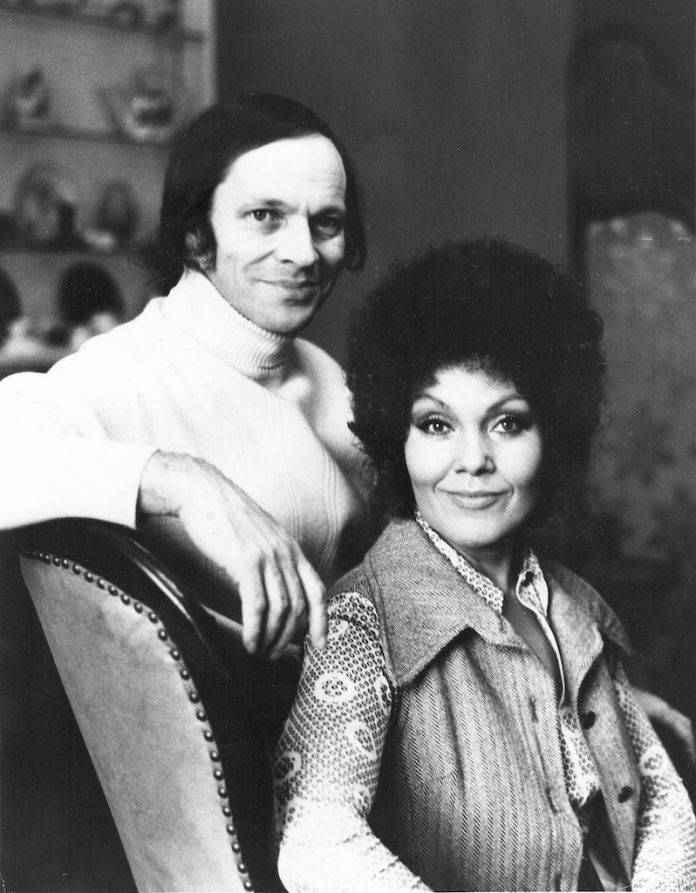It’s been very difficult, in composing this review, to resist the temptation to type out a string of superlatives and leave it at that. Because, you know, there just ain’t anything Cleo Laine can’t do; she gave us ballads, bossa-nova, funnies and near R&B at the Queen Elizabeth Hall, and every number was a complete knockout – I’ve rarely seen a concert which displayed such breathtaking brilliance from the word go to the last note.
Cleo is unique, but I suppose that, since like Sarah Vaughan she applies a fantastic technique to a wide-range of material in a general jazz context, a comparison between the two would be fair. Well, Sarah at her best might be able to give Cleo a run for her money, but the great difference between them is the enormous warmth which is present in everything Cleo does, but more often than not absent from Sarah’s work.
I suppose we shouldn’t be amazed at the rapport between the husband and wife team of John and Cleo, but the highest praise must be awarded to the exceptional playing of Raymon Gallo (gtr), Laurie Holloway (pno), Ken Napper (bs) and John Spooner (dms). They all used their prodigious techniques for the projection of feeling, with the utmost sensitivity.
Richard Rodney Bennett, blues-influenced jazz pianist, played behind Cleo on Wot Is Me, (a beautiful Pat Smythe composition, two settings of his own, and Lady Be Good, on which he took a groovy solo chorus.
It was however Cleo’s treatment of several hoary old standards which really proved her stature. She did It Might As Well Be Spring alone except in the middle section, when the quintet breathed gently behind her, and it was very moving; she sang That Old Feeling accompanied only by John’s clarinet, and I can’t believe that anybody else can ever have given it so much meaning. (Both these items, like Lush Life and My Ship, were rightly one-chorus jobs – what would have been the point of extended treatment after what she’d done to the words first time round?)
Then she scatted her head off on Perdido, with some belting alto from John; and she did a most wonderful relaxed version of Taking A Chance On Love, singing the third word of the title with a long ‘a’ which would undoubtedly have reduced Steve Voce to a gibbering mass of insane delight! (See last month’s Jazz in Britain.)
I haven’t regarded myself as a raving patriot hitherto, but it’s nice to reflect that an artist as great as Cleo is all ours.
Ron Brown
















